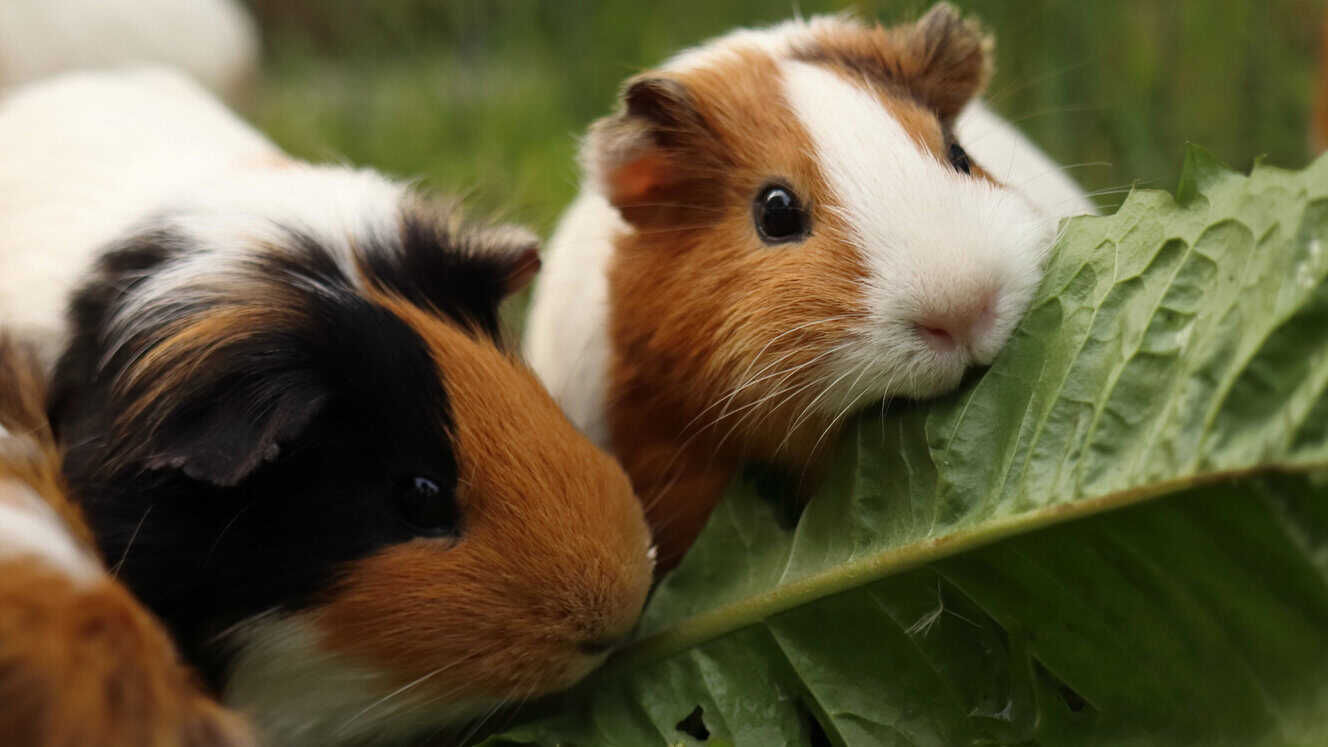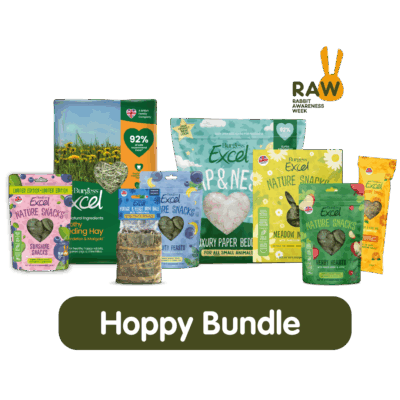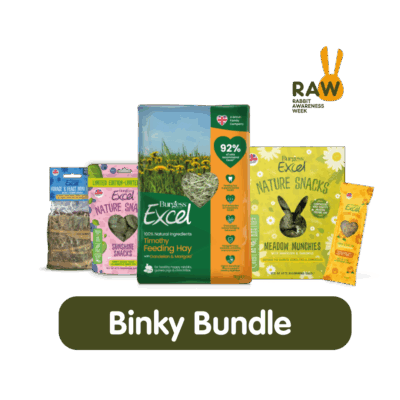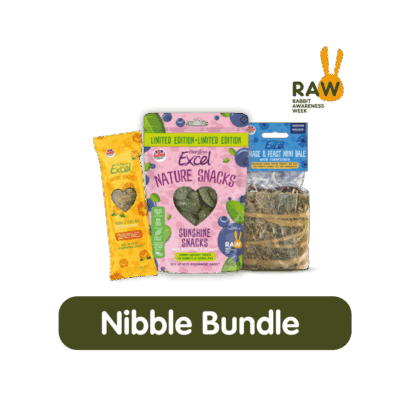
Our beloved pet guinea pigs originate from the Andes region of South America where their wild cousins roam the grassy plains, rocky outcrops and forest edges of Peru, Bolivia, Argentina and Chile. Family groups of between five to 10 individuals venture out of their burrows to graze on grasses and hay, and to forage for herbs, fibrous plants, crops and occasionally roots.
As pets, these shy, active animals have a very sensitive digestion, which requires a high fibre diet that replicates what they’d eat in their natural environment.
12 fun facts about gorgeous guinea pigs >>
Different small pets naturally eat different food
First off, it’s essential to only choose food that’s been specially designed for guinea pigs.
Industry body, UK Pet Food, says: “In the wild, small mammals live in different climates and naturally eat different foods. In fact, food suitable for one species can be totally unsuitable for another. They also have different nutritional needs, with some of them only feeding on plants and others relying on animal proteins in their diet. So, it is important for pet owners to get reliable nutritional advice, specific to their pet type, to provide them with a balanced diet.”
UK Pet Food advises that vegetarians such as guinea pigs only eat grass and plant-based food: “All herbivorous small mammals need plenty of good quality fresh hay and/or grass on a daily basis. Alongside their daily portion of good quality hay, they should also be fed a portion of species-specific pet food. When fed alongside hay and/or grass, a product designed for their species will ensure they are getting all of the vitamins and minerals they need.”
When it comes to feeding your pet guinea pigs, you’ll need to provide the right mix of high-quality feeding hay and guinea pig nuggets, along with some suitable vitamin-C rich fresh food, and healthy treats for added enrichment to keep them busy and happy.
We have all the info you need to know – simply follow our 5-step guide and our expert feeding tips to help your guinea pigs thrive and love life!
1. Start with plenty of fresh, feeding hay, which should provide the bulk of your guinea pigs’ diet
Guinea pigs need lots of fresh feeding hay – not bedding hay, which lacks nutritional value. In fact, hay should make up the majority of your guinea pigs' diet – around 85-90%. An ideal serving is around the same size as their body for each guinea pig.
Wonderful ways with hay! Why hay makes small pets happy >>
That’s why it’s essential to choose high-quality feeding hay that’s been especially grown for eating.
Burgess in-house vet, Dr Suzanne Moyes MVB, MRCVS, advises: “For guinea pigs to be healthy, it’s vital that you choose hay that’s specially grown for small animals to feed on, cut at the right time to capture all the natural goodness, so your small pets enjoy eating it. High-quality feeding hay provides a whole host of benefits for small furries. It’s an excellent source of fibre, helps to maintain a healthy gut and serves to grind down their continuously growing teeth, helping prevent dental disease.”
And, with a choice of deliciously chewy hay mixes available, there’s plenty for your piggy pals to happily chomp on, such as:
- Munchable meadow hay – A natural field-grown product from the Yorkshire countryside that comes in a handy, resealable and fully recyclable box.
- Tasty Timothy hay – Always a favourite with small furries, it’s high in Beneficial fibre, which aids digestion.
- Sweet-smelling feeding hay with Dandelion & Marigold – As well as being delicious to eat, it aids urinary tract health and helps build a healthy immune system.
- Dried fresh grass – A delicious, complementary food made from barn-dried grass harvested straight from the field for those times of year when your lawn’s past its best for grazing on.
Check out our value-for-money mix and match hay bundles! >>
TOP TIP! As guinea pigs love to forage, you can encourage this natural behaviour by scattering some Botanical Blends through their hay. This 100% natural mix of hedgerow herbs is made with a tempting blend of Nettle leaf, Dandelion leaf, Marigold flower and Burdock root Cleavers, which your piggies will find simply irresistible! Watch them forage and munch their way through all the hay they need to stay healthy every day!
2. A daily portion of nutritious nuggets will provide essential vitamins and minerals
Each of your piggies will require an eggcup-sized portion of tasty guinea pig nuggets every day to ensure they are getting all the vitamins and nutrients they need to keep them in tip top health. High-quality guinea pig nuggets contain:
- Protected Vitamin C for healthy skin, coat and gums – this is ESSENTIAL for guinea pigs because, like us humans, they can’t make their own and must eat foods containing Vitamin C every day to stay healthy
- Vitamin A to maintain healthy eyesight
- Vitamin E to maintain a healthy immune system
- Prebiotics and Beneficial Fibre to maintain good digestive health
- A choice of Mint or Blackcurrant & Oregano for extra tastiness!
GUINEA PIG NUTRITION KNOW-HOW
- Young guinea pigs don’t need special ‘junior’ food. This is because, unlike puppies, kittens and baby rabbits, baby guinea pigs are born fully formed and eat solid food just like their parents almost straight away!
- Guinea pigs are living longer! Thanks to better understanding by owners and developments in veterinary care, the life expectancy of pet guinea pigs has increased. While this is great news for guinea pig fans, it does mean that these long-lived rodents may experience various health issues typically associated with old age. Excel Mature Guinea Pig Nuggets with Cranberry & Mint is designed for guinea pigs aged 4+ and includes a range of beneficial ingredients that help support joint health, urinary tract health, eyes and brain health and vitality.
- Indoor guinea pigs might roam the lounge rather than the great outdoors, but they still need to get all of the nutrients from their diet that they would find grazing outdoors. Indoor Guinea Pig Nuggets contain essential fibre and vitamins, along with a special Calm formula with added L-tryptophan.
TOP TIP! Steer clear of muesli-style foods. This is because guinea pigs can pick out the unhealthy bits of these multi-coloured mixes, leaving the rest. This selective feeding can lead to an imbalanced diet that’s lacking in essential vitamins and low in fibre. The unhealthy ingredients in muesli-style foods are high in sugar and starch, which are difficult for guinea pigs to digest and can result in obesity and serious health problems.
Guinea pigs also need constant access to fresh, clean drinking water from a suitable water bottle with a metal sipper spout.
3. Dish out a portion of guinea-pig safe fresh food daily
There’s a wide array of fresh food that your guinea pigs can enjoy – but keep portions quite small. Veterinary charity PDSA advises: “Guinea pigs need a daily selection of fresh greens and vegetables. We recommend giving one cup per guinea pig per day. It’s important to choose a variety of vegetables, including plenty that are high in vitamin C.”
Safe veggies for guinea pigs include:
- Asparagus
- Baby corn on cob
- Bell peppers
- Cabbage (dark green varieties, savoy and red cabbage)
- Carrot tops
- Cauliflower leaves and stalks
- Celery leaves
- Courgette (and flowers)
- Green beans
- Peas (leaves and pods)
- Rocket
- Spinach
- Spring greens
- Tomato – but NOT the leaves/vine as these are poisonous
- Watercress
Guinea pigs love munching on herbs such as basil, coriander, dill, mint, oregano, parsley, rosemary, sage and thyme. You can also forage yourself for wild plants including dandelion leaves, plantain, Herb-Robert and cow parsley.
Guinea pigs don’t naturally eat fruit, but you can give small amounts as an occasional treat. Fruit is high in sugar, which can cause obesity.
Safe fruits for guinea pigs include:
- Apple (not the pips because they’re poisonous)
- Banana
- Blueberry
- Cherry
- Kiwi
- Melon
- Pear
- Plum
- Squash
- Strawberry
Be aware of foods that you should NEVER give to guinea pigs. These include:
- Sweet treats – Colourful guinea pig treats are often very high in sugar, and bad for your guinea pigs’ teeth and tummy.
- Human food – High carb bread, pasta and crackers can cause digestive problems. Chocolate and dairy products are particularly dangerous and citrus fruit can upset their sensitive tummies.
- Grass cuttings – Guinea pigs should be given unlimited access to steadily graze on fresh grass, just as they would in the wild. However, a pile of grass cuttings can be difficult for guinea pigs to digest and may upset their delicate digestive system, leading to bloating and diarrhoea. In addition, grass cuttings often contain weeds such as buttercups and daisies, which are poisonous to guinea pigs.
- Toxic flowers – Avoid daffodils, poppies and tulips.
- Unsuitable fruit and veg – Vegetables to avoid, as they are poisonous to guinea pigs, include potatoes and potato skin, onion and related vegetables, garlic, mushrooms, chives and avocado. Light-coloured lettuce varieties are high in water, have very little nutritional value and will just give your guinea pigs the runs. Also steer clear of rhubarb – it’s poisonous to animals if eaten raw.
- Nuts and seeds – All nuts are high in fat not fibre and will give your guinea pigs extremely uncomfortable indigestion.
If you’re not sure whether something’s safe for your guinea pigs to eat, it’s best avoided.
4. Nutritious treats add extra interest and will keep your guinea pigs busy and happy
Don’t forget to include some yummy hay-based treats to show your guinea pig chums just how much you love them. These are a fantastic way to add variety to your small pets’ diet and are great for hand feeding, to help you build your bond with your small furry friends. And, because they’re hay-based, your small pets can enjoy them as part of their daily diet. Why not try:
- Forage & Feast Mini Bales – Bite-sized bundles of hay topped with a choice of flavoursome flowers – Cornflower, Rosehip or Marigold.
- Forage & Feast Hay Bars – Perfect for hand feeding, these hay bars come in three appetising varieties – Marigold, Cornflower or Rose.
- Meadow Munchies – Little nibbles of compressed meadow hay mixed with dandelion and camomile – naturally yummy!
- Fruity Feasts – A complementary grass-based healthy snack for guinea pigs made with tasty banana and blueberry.
- Herby Hearts – Baked grass-based treats with mixed herbs and apple that are irresistible to guinea pigs – and they're naturally healthy too!
- Wildflower Forage – Made with a tempting mix of rose, hibiscus, marigold and cornflower, it’s ideal for sprinkling in hay to encourage natural foraging behaviour.
- Luscious Leaves – A healthy treat made with an enticing blend of dandelion leaves, nettle leaves, red clover and ribwort which you can also mix in with hay for extra munching fun.
5. Add some fun to feeding time
Wild guinea pigs spend most of their waking hours searching for food. There are lots of ways you can encourage this natural foraging behaviour for your pet piggies:
- Scatter their daily nuggets allowance around their accommodation instead of just feeding from a bowl.
- Hide hay, nuggets and herbs in paper bags, cardboard tubes and boxes for them to investigate.
- Try out some special activity toys suitable for small animals, such as treat balls that you can put some of their daily ration of nuggets in for them to forage for.
- Add an extra chewing challenge by providing your guinea pigs with untreated softwood to gnaw on. Before you give your pets any softwood branches to chew, bake them on a low heat for an hour and give them a good wash to make sure they’re guinea pig safe. Good woods to use are apple, elm, hawthorn, hazelnut, pear, poplar and quince.
EXPERT GUINEA PIG FEEDING TIPS
- Guinea pigs perform a digestive process called caecotrophy to extract as much goodness as possible from their food. Simply put – they eat their droppings (caecotrophs), allowing many important nutrients to be reingested. So, if you see your piggies doing this, don’t panic – it’s totally natural behaviour!
- Guinea pigs need to keep their digestive systems busy with a mix of two kinds of fibre moving through the gut at all times. These types of fibre are called digestible fibre and indigestible fibre. They get this fibre mainly from high-quality feeding hay.
- It’s best not to make any sudden changes to your guinea pigs’ diet as this may make them very ill. Always introduce new diets gradually. A sign of a healthy guinea pig is when he/she is eating every day and passing plenty of dry droppings.
- If you are at all unsure about the best way of feeding your guinea pigs or have any concerns about specific nutritional requirements, ask your local veterinary practice for advice. You can also call our expert team on 44 (0)0800 413 969 who’ll be happy to help. They’re available 9am-5pm, Monday to Friday. Alternatively, you can use our online form to get in touch.
SERVE UP ONLY THE VERY BEST DINNER FOR YOUR SMALL PETS!
Our small pets deserve a high-quality diet that’s created just for them. At Burgess, all our foods for small pets is made at our factory in the heart of Yorkshire, using only ingredients that meet our stringent specifications.
With a long tradition of supporting British farmers, we actively source all our ingredients as close to our mill as possible and have launched many innovations. These include the world’s first food specifically formulated for indoor rabbits and the world’s first indoor guinea pig nuggets which are made with a calm formula. Burgess Excel has also developed nutrition-packed food for chinchillas and degus, hamsters, gerbils and mice, pet rats and ferrets.
*It’s no surprise that 92% of UK vets recommend our Burgess Excel small pets range!*
CARE MORE Find lots of useful advice on caring for all your guinea pigs from Burgess, the pet experts. Health, housing, feeding, companionship and guinea pig behaviour. It’s all here >>
If you found this interesting, you may also like:
GUINEA PIG Q&A Are guinea pigs good pets for children? How long do guinea pigs live? What do guinea pigs like to do? How can you tell if your guinea pigs are happy? We’ve all the answers to these questions and more.
HOW TO GROOM YOUR GUINEA PIGS From the brush and browse, ear clean, dental check and nail trim to the grease gland wipe, discover more about the essentials of guinea pig grooming with our 5-step guide.
WHAT’S THE BEST BEDDING FOR SMALL PETS? Whichever small pets you have, each has different requirements when it comes to creating a cosy, safe snoozing space.
INTRODUCING A NEW GUINEA PIG FRIEND A solo guinea pig is not likely to be a very happy guinea pig. These chatty cavies need at least one other piggy for company. However, introducing one guinea pig to another has to be done very carefully.
HOW DO YOU CREATE AN IDEAL HOME FOR YOUR INDOOR GUINEA PIGS? Traditionally thought of as outdoor pets, more and more people prefer to keep their guinea pig friends indoors – and there are lots of good reasons why. Yet however cosy and stylish your indoor piggies’ home is, it also needs to meet all their health and wellbeing requirements.
LOST IN TRANSLATION? GUINEA PIG SPEAK EXPLAINED Guinea pigs generally have plenty to say, using around 11 different noises to communicate how they’re feeling. Getting to know what the various piggy sounds means will help you identify when they’re happy and excited or fearful and unwell.
RABBITS AND GUINEA PIGS – IS INDOORS OR OUTDOORS BEST? Is the outdoor life better for bunnies and guinea pigs, or will these small pets have a more enriching time if they’re kept indoors?
SPRING CLEANING? WHY GOOD HOUSEKEEPING IS A SMALL PET ESSENTIAL Keeping your small pets’ home clean, tidy and hygienic will discourage pests from making an unwanted appearance and help keep your small furry friends healthy and happy.
THE SUN CAN BE FUN BUT OUR PETS NEED TO KEEP IT COOL How do you help your pets cope in hot weather? Whether you have dogs, cats or small outdoor pets such as rabbit, guinea pigs and ferrets, we’ve lots of useful advice to help them handle the heat.
WILD AT HEART Inside every pampered small pet is the desire to exhibit their innate, hardwired, natural behaviours which reveal their wild origins. It’s the reason why bunnies want to dig and burrow, guinea pigs like to keep a watchful eye on what’s going on from a safe hiding place, hamsters stuff food in their cheek pouches and chinchillas prefer to sleep hunched up. Find out more about the natural and fascinating behaviours of some of our favourite small furries.
SMALL PET RESCUE If you’re looking for small pet friends, could a rescue centre be a good place to start? With expert advice on hand, finding your perfect small pet match couldn’t be easier...
FINDING A VET FOR YOUR SMALL PETS Did you know that just like hospital specialists, vets have different areas of expertise? That’s why, if you have small pets, it can be a good idea to seek out a vet that specialises in small animal medicine.
HOW TO HANDLE SMALL PETS When it comes to being handled, different small pets have very different opinions. Some soon learn to enjoy it – particularly if there are some tasty treats involved! Others are not quite so keen.
BONDING WITH YOUR SMALL PETS Handfeeding is a great way to build a closer bond with small animals. It takes time to build trust, but when your little friend finally feels confident enough to take a treat from your hand, it’s a special moment.
THE UK’S TRENDIEST SMALL PET NAMES From rabbits to guinea pigs, pet rats, mice, gerbils and hamsters to chinchillas, degus and ferrets, when it comes to naming your small pets, how do you choose a name that suits their beguiling looks, sweet personalities and adorable ways?
DO YOUR SMALL PETS HAVE THE RIGHT TO ROAM? While providing your small pets with secure, accommodation that’s suitable for their species is all-important, small furries also benefit from having the opportunity to explore and exercise outside their main housing in an appropriate setting.
SMALL PET MUMS ARE BIG ON LOVE Let’s celebrate small pet mums for the amazing job they do bringing up their tiny babies!
WHAT PUTS YOUR SMALL PETS IN A GOOD MOOD? Along with socialising with their same species companion and interacting with their favourite human, our survey reveals the best thing you can to do to give your small furries a happiness boost…
BIG IDEAS FOR SMALL PETS Enriching the lives of our small animals will help them lead their best pet lives. We’ve lots of ideas for things you can introduce to keep things interesting for small furries
COST EFFECTIVE WAYS TO LOOK AFTER YOUR SMALL PETS How to create DIY boredom breakers and ways to upcycle old furniture and unwanted items from around the house into interesting features for your pets’ environment.
NEW PETS ON THE BLOCK? From dogs to degus, cats to chinchillas, guinea pigs to gerbils, ferrets to fancy rats – when did these awesome and amazing animals become our furry companions?
HOW TO TELL IF YOU HAVE A HAPPY PET Wheek-wheeking, bruxing, dooking, chirping, binkying, popcorning – there are all sorts of ways our pets tell us they’re feeling good, once you know what to look for...

















